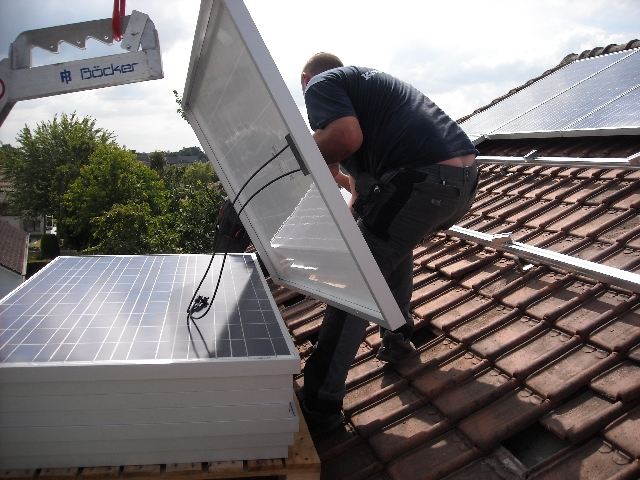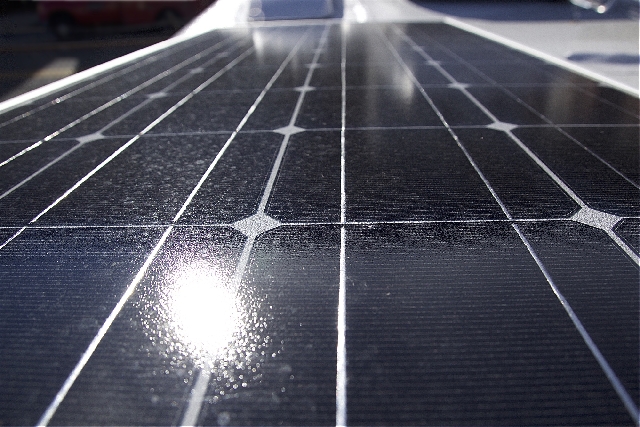Maximizing Your Home’s Solar Potential
Solar power has the potential to revolutionize how we produce and consume electricity. With renewable energy becoming more popular, solar power has become one of the most sought-after sources of clean energy. Solar power is a reliable source of energy that can be used virtually anywhere, making it an attractive option for both residential and commercial applications.
The amount of energy produced by solar panels depends on the location, climate, and weather patterns in which they are installed. But if used correctly, solar panels have the potential to generate enough electricity to power homes and businesses for a fraction of the cost associated with traditional grid-based electricity. In fact, many countries have implemented policies that encourage homeowners and businesses to install solar panels in order to reduce their reliance on fossil fuels.
Benefits of Home Solar
Home solar energy is a growing trend that provides many advantages to homeowners. Homeowners who decide to install home solar systems are able to take advantage of several economic, environmental, and lifestyle benefits.
One of the most obvious benefits is the cost savings associated with using solar energy. Solar energy will help reduce electricity bills by harnessing power from the sun and providing clean and free renewable electricity. As an added benefit, some states offer tax incentives on residential solar system installations which further increases financial savings for homeowners.
In addition to economic benefits, home solar systems provide environmental benefits as well. Traditional sources of electricity such as coal or natural gas emit pollutants into the atmosphere, but when you choose solar power you can reduce air pollution from these sources and contribute positively to climate change action goals.
Understanding Your Home’s Potential
Solar potential refers to how much solar energy falls on an area, including buildings such as homes or businesses. As the sun shines, photovoltaic cells on the roof absorb this energy and convert it into electricity which can be used throughout the entire house. With increased awareness around environmental protection, more people are looking at their homes’ solar potential as a way to reduce their reliance on nonrenewable resources.
The most important step when examining your home’s solar potential is to assess the amount of direct sunlight it receives on a daily basis. For example, if your roof faces south and has nothing blocking the sun during peak hours, this indicates excellent solar potential for installing PV panels. Additionally, you should check with local government regulations to ensure that you are able to install the solar system properly and safely. Understanding your home’s solar potential means assessing the size and location of available roof space as well as analyzing climate conditions such as sun exposure levels and average daily temperatures throughout the year.
Exploring Solar Equipment Options
Exploring solar equipment options is an important step before investing in a solar energy system. Before deciding to go solar, it is important to take the time to understand the different types of equipment available and evaluate which type best suits your needs.
When exploring your solar potential, one of the main considerations is the type of solar panel you’ll use for your system. Solar panels come in various sizes, performance levels, and materials such as monocrystalline or polycrystalline silicon cells. Other components necessary for installing a complete system include inverters that convert direct current from the panels into usable alternating current power and mounting hardware used to secure the panels on rooftops or in yards. Battery systems are optional components that allow homeowners to store excess energy for later use when their renewable energy source isn’t producing power (i.e., at nighttime).
Solar panels, inverters, and charge controllers are all necessary pieces of equipment for setting up a solar system. Solar panels collect sunlight and convert it into electricity that can be used by appliances in the home or business. Inverters convert direct current (DC) generated by the panels into alternating current (AC), which is then pushed out onto the electrical grid for use in the building. Finally, charge controllers allow for efficient storage and distribution of electricity produced by solar panels when it isn’t immediately needed.
Installing & Maintaining Solar Systems

Maintaining solar systems is an essential part of ensuring that they continue to function in the most efficient way possible. First and foremost, regular inspections are key to maintaining any solar system. It’s important to look out for any signs of wear or damage that could affect the system’s ability to generate electricity properly. This includes checking all components from the panels themselves down to the wiring connecting them together. Additionally, cleaning off any dirt or debris which may accumulate on the panels should be done about twice a year as this can reduce their efficiency if left unchecked.
The most important maintenance task when it comes to solar systems is cleaning the panels. Dirt, dust, and other debris can build up on the surface of the panels, which reduces the amount of sunlight that reaches them and decreases their efficiency. Regular cleaning helps keep your system working at its best so you can benefit from maximum savings on your electricity bills. Additionally, it’s essential to check wiring connections regularly as these can loosen or corrode over time due to weather conditions such as heavy rain or snowfall.
Conclusion
In conclusion, maximizing your home’s solar potential is a great investment that can provide long-term financial and environmental benefits. It can help reduce your environmental impact, lower utility costs, and increase the value of your home. With available federal and local incentives, now is the perfect time to explore solar options for your home. The important thing to remember is that you must do your research to find the best option for you and your family.

